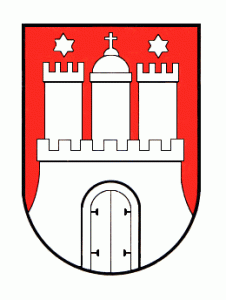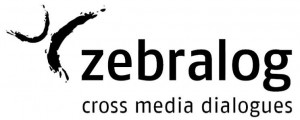
Danish Technological Institute (DTI) is an independent, not-for-profit institution with the mission to promote research, business and society, through technology-supported innovation and growth. It has 850 employees spread over seven locations in Denmark and Sweden, and supplies approved technology services such as consultancy, tests, certification, and training for companies and public-sector organisations. DTI’s Centre for Policy and Business Analysis has some 25 employees and provides high level consultancy in policy analysis and evaluation at national and international levels, across the three areas of technology and society, labour market and training, and regional and business development.
For more information please visit: www.dti.dk
INSERT_MAP
]]>Anna Carola Freschi is a Ph.D. in Political Sociology at the University of Florence, Faculty of Political Sciences. She is Assistant Professor at the Faculty of Economics, University of Bergamo, where she teaches Sociology and Economic Sociology. She holds a Jean Monnet Module on Information Society and Social Change, at the University of Florence. Her work is about e-participation in an extended meaning (ICTs applied to participation in institutional and non institutional contexts). She has written articles, essays and books about local governance transformation and the social implications of networked society for social and political participation in the Italian society. She is the author of the strategic section of the Italian Guidelines on digital citizenship, a central document of the national Government to support local e-democracy initiatives. She is currently coordinating the group, who collects sociological expertises in social inequalities, deliberative democracy and gender issue, studying some Italian local experiences of e-participation in the institutional contexts (urban strategic planning, participatory budgeting, regional law-making, Agenda 21, etc.).
The adopted research approach is characterized by a strategy of empirical research integrating quantitative and qualitative instruments, applied to online and offline participation processes. The theoretical frame is done by contemporary sociological thought about the transformation of social and political participation in the context of globalized, networked and knowledge-economy based societies. The research team is partner of the European Network of Excellence on E-participation, Demo-net, focusing his activities particularly on the problem of e-participation evaluation and on the political contexts of e-democracy. She collaborates with the Faculty of Political Sciences, University of Florence (Ph.D. Program in Sociology and Political Sociology) and with CIUSPO (Inter-Universities Center of Political Sociology), where she has just appointed responsible of the Unit on “Forms of politics in the network society”. She is member of the Editorial Board of Sociologica. The Italian review of Sociology on line, (www.sociologica.mulino.it).
Michela Balocchi is a Ph.D. in Sociology and Political Sociology at the University of Florence, Faculty of Political Sciences, with a thesis on “Gender in Politics. Theoretical Reflections and One Case Study”, 2006. She is a Research Fellow at the Faculty of Economics, University of Bergamo, currently working on e-democracy experiences in Italy. She has previously collaborated to some research projects at the University of Florence and Siena, and to some courses of Sociology at the University of Florence and Prato. Her main research fields are: concepts and practices of gender; gender and politics; gender stratification in education and labour market; care work and the capabilities approach; gender and violence; e-democracy and e-participation; e-valuation; digital divide. She has published articles and essays on gender issues and on e-democracy.
Luca Raffini is a PhD in Sociology and Political Sociology at the University of Florence, Faculty of Political Sciences) He is currently Research Fellow at the University of Bergamo on a research about e-democracy and e-participation experiences in Italy. He collaborates with CIUSPO (InterUniversity Center of Political Sociology, based at the University of Florence. His field of research and his publications are focused on theories and practices of deliberative democracy; participative process at local level; e-democracy and e-participation; youth and democracy; European integration and democracy in Europe. He is member of the Editorial Board of Partecipazione e Conflitto (Participation and Conflict).
Giovanna Tizzi is a Ph.d student in Sociology at the University of Florence. She is working on a research project about e-democracy in Italy, supervised by the research team of the University of Bergamo. She has started her research experience in 2003 collaborating on a national project about the state of the art of local e-democracy in Italy funded by the Italian Government and carried out by the University of Florence, and coordinated by Anna Carola Freschi. She has been deeply involved also in two major researches concerning the digital city of Florence and the first Electronic Town meeting held in Tuscany.
Roberto Zarro is a free-lance researcher with a background in Communication sciences. He has written article, essays and reports about digital culture, e-government and e-participation. He teaches in several Italian Master Courses addressed to university students, employees of public sector and professionals. He is currently working on Pep-Net project within the team of University of Bergamo, and for the Regional Government of Emilia-Romagna, collaborating to the activities related to the communication of e-government and e-participation projects, in the framework of the “Piano Telematico dell’Emilia-Romagna”.
INSERT_MAP
]]>
E-Voting.CC offers holistic and professional consulting covering the whole electoral process, from the planning and the preparations over the implementation to the independent evaluation and election observation worldwide.
INSERT_MAP
]]>
The official name “Free and Hanseatic City of Hamburg” goes back to Hamburgs membership in the medieval Hanseatic League. These are the roots of the international trade city Hamburg the commercial and cultural centre of Northern Germany. Hamburg is the second largest city in Germany and the second-largest port city in Europe. Apart from national capitals Hamburg is the most populous city in the European Union. The city, defined according to its current administrative area, contains 1.76 million and the so called Hamburg Metropolitan Area with more than 4.5 million inhabitants.
Hamburg is a city-state and one of the sixteen Federal States of Germany. The administration has nine departments for the ministerial targets, two departments directly working for the senate and seven departments doing the communal work. Hamburg has the first German coalition Government between the Christ Democrats and the Green Party. Hamburgs E-Government is an abandonment of the Ministry of Finances. The Ministry has its own working-staff the – so called – “Stabsstelle-E-Government”. This staff unit is directly subordinated to by the Privy Council.
The staff members are responsible for the citywide E-Government-Strategy. One of the major targets is to discover new online-services for all the different target groups. They also promote and support E-Government conclusions within Hamburg, Germany and the EU. The “Stabsstelle E-Government” has an overview over all the activities of the different administration departments.
E-Participation is a part of the E-Government-Strategy. During the past years all kinds of online dialogs had been held.
Hamburg started E-Participation back in 2002 within the EU-Project “DEMOS” (Delphi Mediation Online System). The first dialog was about the vision “Hamburg metropolitan area and growing city” and has been held with Hamburg citizens.
It took quite a while to get the right attention inside the administration departments and with the citizens. After a couple of years with activation and marketing the interest in E-Participation in Hamburg – both: administration and citizen – was growing. In fall 2005 the discussion “family friendly living in Hamburg” was held followed by the “city budget dialog” initialised by the legislative township. The question was “how would the citizens handle the budget to pay the administration costs”? In spring 2007 a discussion about the new conception of the cathedral-place was held. The last dialog was “living-bridge” which was based on a architecture concept (a connection between the city and the docklands). All these dialogs and the depended moderation had been realised by the experts of the TuTECH Innovation GmbH. There are a couple of standards within all the discourses: limited period of time (between 2 and 4 weeks), three phase model, the focus on results, focus on the value and usability of the results for the ongoing political process.
With its online dialog concept Hamburg took the leading position in Germany. This is one of the reasons why it is a pleasure for Hamburg as the only German administration to become a part of the PEP-Net and to share the experience and participate with the PEP-Net-Members. More dialogs will be held in the near future.
More information please visit: www.buergerbeteiligung.hamburg.de
INSERT_MAP
]]>

POLITECH INSTITUTE is a not-for-profit international association (AISBL) and a European Center of Political Technologies located in Brussels, Capital of Europe, dedicated to promote novel concepts and innovation empowering the different stakeholders in a ‘citizen-driven’ digital world, as well as support the development of effective strategies, policies and share of best practices in the converging domains of Political Technologies for a better use of Information and Communication Technologies (ICT) towards the advancement of modern public governance and democracy.
POLITECH INSTITUTE offers its members a European and International platform of network, exchange, consultation, information, debate, training, and a European home to research and development initiatives to generate innovation and share best practices.
POLITECH INSTITUTE delivers powerful and expert services to empower, train, educate, activate and mobilize public, academic, civil and private stakeholders and end-users to meet successfully the challenges of modern politics and public governance in Cyberspace.
INITIATIVES & PROJECTS:
POLITECH INSTITUTE organises and participates in international events and workshops dedicated specifically to the implementation of ICT in the EU, such as the “Worldwide Forum on e-Democracy”, Issy-les-Moulineaux (France), the annual “Global Forum, Shaping the Future”.
POLITECH INSTITUTE, in the framework of the first International Executive Master in e-Governance, launched by the Swiss Federal Institute of Technology Lausanne (EPFL) in 2004 and in partnership with University of St. Gallen (Switzerland), Monterrey Tech (Mexico) and the University of Tampere (Finland), organized, in January 2005, a week of seminars and debates dedicated to the European dimension of e-Governance.
POLITECH INSTITUTE publishes the European Review of Political Technologies (ERPT), a unique pan-European online periodical bridging the domains of Political Technologies.
POLITECH INSTITUTE publishes The European eDemocracy Award Report, in partnership with IP LABEL for The Annual European eDemocracy Award, in the framework of The Worldwide Forum on eDemocracy.
For more Information please visit: https://www.politech-institute.org/
INSERT_MAP
]]>
Headstar is a UK-based research, publishing and events company focused on technology, innovation and social issues. Its publications include E-Government Bulletin, on the use of ICT to modernise public services and democracy, and E-Access Bulletin, on access to technology by people with impaired vision.
Headstar’s successful series of conferences and events on technology and social issues include ‘e-Democracy’, the UK’s leading event on the use of the internet and other new technologies to enhance all aspects of the democratic process. Headstar also conducts online debates, consultation and discussion using unique ‘virtual think-tank’ methods; and research and consultancy in all its areas of expertise.
For more information visit: www.headstar.com
INSERT_MAP
]]>
The CEE Citizens Network is a social development initiative involving 17 countries from Central and Eastern Europe. The Network exists to both improve each member organization’s efforts and also result in some external impact in the CEE region through the following objectives:
- Increase awareness of the general public throughout CEE on the potential and impact of citizen initiatives
- Increase skills and capacities of citizens to more effectively participate in local and national development
- Promote citizen participation throughout the CEE region
The mission of the Network is to promote citizens participation in Central and Eastern Europe and provide opportunities for grassroots initiatives to learn and exchange experiences and ideas.
For more information visit: www.ceecn.net
INSERT_MAP
]]>

21c is a specialist ‘e’-knowledge management boutique which provides end-to-end strategy and project management services to the public and private sector. Our clients benefit from the agility, innovation and genuine sense of partnership of a close knit team and the methodological rigor of a Big Five consulting firm.
21c helps clients to structure and deliver successful citizen-centric IT programmes. We work closely with our clients throughout every stage of the project cycle – from proposal development to implementation – to identify effective solutions, achieve key milestones and disseminate results. We provide the critical – and often missing – link between IT architects and the community.
21c are uniquely placed in the government market to bring together networks of specialist organisations and people to ensure best of breed solutions for our clients. Our consultants are Prince2 and Managing Successful Programmes qualified, and have hands-on international experience in helping clients to achieve the transformational potential offered by new technologies.
21c Consultancy combines a unique insiders’ understanding of how government operates with a proven track record in the private sector.
For more information visit: www.21cconsultancy.com
INSERT_MAP
]]>
The Civil College Foundation (CCF) is a nationwide adult education organization which organizes practical training for citizens willing to act, the members of self-organizing communities, and the participants of community work and community development vocational training programmes.
The Civil College Foundation was founded in 1994 as a result of the joint recognition of an increasing demand for training in community development. The Civil College Foundation is a social, public benefit organization. In 2003 CCF became an accredited adult education institution, under registration number 07-0218-02 of the National Public Education Evaluation and Examination Centre (OKÉV), its institution accreditation is number 0317.
The foundation has purchased a derelict and ruined former elementary school building in Kunszentmiklós-Kunbábony. Having raised 40,000,000 HUF, it renovated the building and converted it into a modern training centre offering residential training facility for 24 + 8 people since 1997. The Civil College Foundation also organizes courses in other parts of the country, adjusting to local needs. At the same time, the community centre hosts events of local public life.
The activity of the organisation: Our trainings have two main groups.
The participants of the „civil trainings” are civil and community activists, who, with the help of the syllabus developed by the CCF trainers and through participation-based adult education methodology, learn how to think from their community’s point of view, learn civil action techniques, etc. These trainings are as follows: community, civil, democracy, community economics development and community media, democracy and Europe training;
The community development and community worker vocational trainings have two areas: the first is the organisation of community development and community worker practice modules for higher education institutions; the other is the medium-level vocational training of those local activists who are at a disadvantage in the labour market. Most of the trainings are 24 hour weekend trainings; the field practices usually last 5 days, the professional trainings 60-120 hours. The number of participants in the trainings is 14-32. Every year 700-800 people join CCF trainings.
The CCF also takes part in professional development projects in community development and in experimental adult education programmes. It has a wide-ranging international network, organises several major national and international events (conferences, seminars, community action programmes, inter-professional programmes) and is involved in the activities of several working groups in order to represent the case of citizen and community participation in the decision-making processes.
INSERT_MAP
]]>
Zebralog is a not-for-profit organization that supports modern democratic decision making through the use of interactive media. Zebralog offers every service that is needed to run online dialogues: institutional embedding, marketing, technical backbone and moderation.
For more information please visit:
INSERT_MAP
]]>